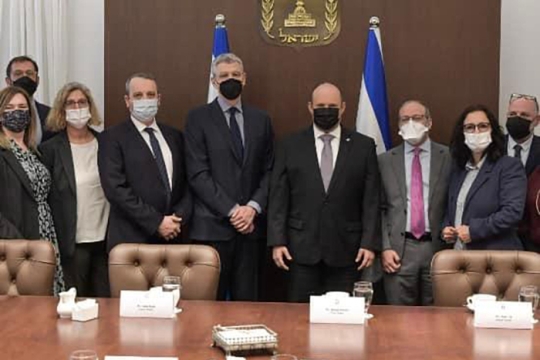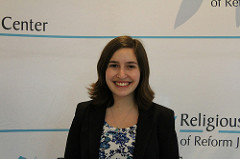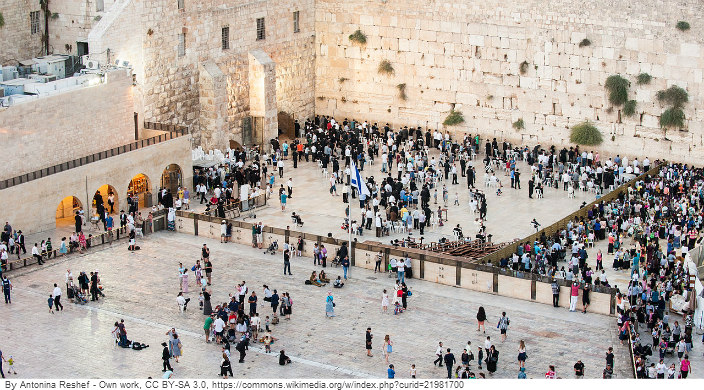
My homemade tallit, or prayer shawl, is the most meaningful Jewish object that I own. When I embarked on my Birthright journey to Israel with URJ Kesher in December 2015, I packed my beloved tallit along with my Chacos and water bottle, but my tallit never saw the light of the Jerusalem sun. I had fully intended to don my prayer shawl on the women’s side of the Western Wall, or Kotel, following in the tradition of my Jewish feminist role models, Women of the Wall. Yet, when the time came, I was paralyzed. With my tallit in my backpack, I walked past the watchful eyes of the Orthodox woman whose job it is to police attire at the entrance to the women’s section at the Kotel. All of the other women on my trip chose to wear long skirts and no tallitot, and standing at the holiest site in the world for many Jews, I felt alone and vulnerable.
To this day, I regret leaving my beautiful tallit in my backpack at the Western Wall. However, recent events at the Kotel demonstrate exactly why I was concerned about praying in the way that would have been meaningful to me. An egalitarian prayer service was protested by ultra-Orthodox men, and the executive director of Women of the Wall was detained by police for carrying a Torah into the women’s section. Even though these events are upsetting, they are the latest iterations of the battles that Women of the Wall has been admirably fighting for many years. Most recently, I was even more disappointed by the delayed implementation of the deal that the Israeli government reached in January, after my first trip to Jerusalem.
On June 14, Israeli ultra-Orthodox leaders entered the egalitarian prayer plaza and erected a mechitza, or partition, for their service, taking over the egalitarian space and establishing the same status quo that exists in the main prayer plaza of the Kotel. It has become clear that, while the Women of the Wall have catalyzed major changes at the Western Wall, there is still much work that needs to be done to ensure that all Jews will feel welcomed there.
I am hopeful that when I return to Jerusalem, I will feel no hesitation or anxiety when I wrap myself in my tallit at the Western Wall, singing out loud alongside women and other Reform Jews without scrutiny or fear of repercussions. Because of the recent messages sent by the ultra-Orthodox through their actions, if I were to hop on a plane and travel to the Kotel today, I am not sure that that would be the case.
I have heard it said that, among other reasons, it is so powerful to pray at the Western Wall because you have the eyes of all of the Jews of the world on your backs, as they face east to pray. Now, the eyes of every Jew in the world should be on the Western Wall and the Israeli government as the deal for an egalitarian prayer plaza stalls. I urge you to keep your eyes on the events occurring in Jerusalem by the RAC’s issue page on Israel and keeping up with the events of Women of the Wall. Next year in Jerusalem, may I and all other women who choose to freely wear our tallitot with the eyes of the world on our backs. Next year in Jerusalem, may Jewish pluralism be a reality.
Related Posts
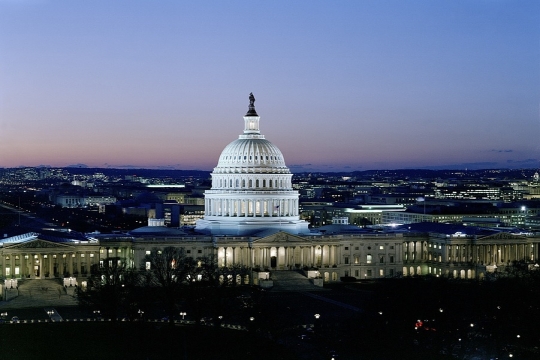
The Injustice of False Choices
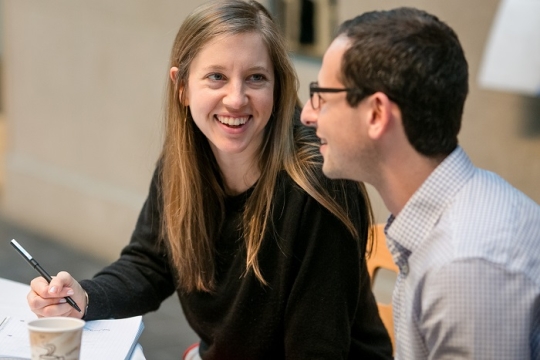
Civil Discourse – How to Facilitate Productive Conversations about Hard Topics
